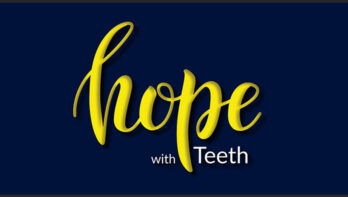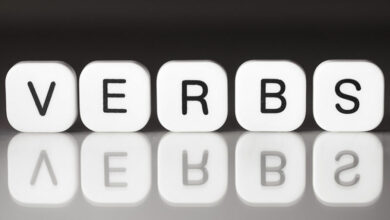Things to NOT say to a Publisher
Former EPA editor-tuned-publisher Dale Hanso Bourke returned from the dark side of the force to give mere mortals a quick guide to things you should never, ever say to your publisher (if you want to continue being an editor).
(Note: Dale Hanson Bourke has worked both as editor and as publisher. The following is adapted from an EPA workshop she presented to help editors understand their publishers.)
by Dale Hanson Bourke
1. “If we write it, they will come.”
A publisher would view this as editorial arrogance, because while ideally it would be the case, it doesn’t always work out. Newsday won two Pulitzers recently, but unfortunately when the LA Times bought it they shut it down. Having editorial excellence is not enough anymore.
2. “Ads just clutter up the pages.”
The reality of ads is that they are a major revenue stream for a publication, and that is a major way your salary is paid. Ads to a great degree set the tone for your publication. People make judgments about your publication depending on the kinds of ads that are coming in.
A lot of times you get conflicting points of view. Readers don’t look at the ads and say that has nothing to do with the editorial product From a readers perspective your ads and editorial product are all the same. For example, Inspire was trying to become a newsstand publication, yet a lot of the ads they had were from a much smaller perspective. If you have a great disconnect between what your ads and your editorials are saying you have a hard time convincing your reader that you know who he or she is.
3. “Who cares what our competition is; we’re the best.”
You may very well be the best, but the competition is not only the other publications like yours, it’s other magazines.
4. “We just won an EPA award, so why don’t we get raises?”
Awards typically don’t mean a whole lot to the publication side. They don’t usually bring you new subscribers or new advertisers.
5. “We don’t have a big enough editorial staff.”
No one has a big enough editorial staff. A fundamental understanding that’s very difficult for editors is that everyone on the editorial side is an expense. You don’t bring any revenue — you are an expense and everyone you add to the editorial side and every photo you buy is an expense. So from a publisher’s perspective, everything that you’re very excited about editorially is an expense. It goes directly to the expense side of the publication.
6. “I thought the budget was just a suggestion.”
This reinforces every publisher’s view that creative editorial people are very right brain and can’t be trusted and aren’t going to listen if you talk to them about money. It ‘s really important that you respect the publisher’s point of view about money. What’s at stake is not really whether you spent $10 too much on an issue, it’s whether you’ll be able to negotiate the things you want in the future. It’s really important to the publisher that he knows he can count on the figures for each issue. If by the third of 12 issues you’re already over the projected budget, the publisher is probably starting to say, “I’m not so sure we need all these editorial people.” Publishers can’t count on a lot of new revenue these days, there probably isn’t much out there they haven’t found. So the only thing they can do is cut expenses.
7. “What do subscribers know anyway?”
Generally this is something said after you get a nasty letter or somebody cancels your subscription. Subscribers are your bread and butter and you can’t outpace them. A lot of time editors get themselves into a position of trying to educate their subscribers, of trying to tell them what they “should” know, and that is a major, major mistake. When you feel as an editor that you know more than your subscribers, you’re in dangerous territory. Your subscribers can very easily sense a certain arrogance or sense that they aren’t valued. Now of course you want to introduce new ideas to them, but you have to do this carefully and be aware that your subscribers need to be respected and can’t be brought to a point where they’re uncomfortable. Because if they’re uncomfortable, they’re not going to open the magazine, and they’ll stop renewing their subscription.
8. “We don’t want to pander to crass commercialism.”
You have to recognize that from a publisher’s point of view, you are in a commercial venture. You have to figure out ways that the publisher is going to make money. Sometimes editors think that if people don’t subscribe, they just don’t know what they ‘re missing. Yet from a publisher’s point of view, people vote with their money. When you go out and send a solicitation for a new subscription, you don’t count the results unless people actually send the money. In direct mail testing, when you ask people if they’d be interested in a particular publication, they’re far more likely to say they’re interested than they are to send in a check to subscribe. Unless they’re in a commercial exchange with you, they probably don’t value you as highly as you think they do.
9. “Why do we have to break even?”
Breaking even simply means you’ve made no money and you’ve lost no money. If you’ve lost money that means the next year you have to make even more money. Sometimes you’re in an organization where they help take care of the bottom line, where they give a certain amount to cover your deficit. For the most part that’s not going to last a long time. At some point a board of directors is going to say, “why are we supporting this publication? If people really valued it, they’d pay for it.” So even if you’re not in a situation where you’re being constantly pushed to break even, try to hit that mark. In a ministry organization, there are many times you can say “we could be putting this money into the publication, or we could be sending it to field operations or using it for actual ministry.” And those are the kinds of tough decisions boards have to make. So even if you’re not in a commercial situation, remember that those are the kinds of decisions that are probably being made about you.
10. “Why do we need a publisher anyway?”
I remember as an editor watching the business people go out for long lunches and the publisher traveling. As an editor you’re sitting there day after day doing the same job and it looks like the publishing side is just out there having a good time. But from a publisher’s perspective, without people like the ad sales person and the circulation manager you wouldn’t have revenue. The business side always says “oh, those editorial people spend all this money and take all this time.” And the editorial people always say, “what do they do anyway, why are they always going out to lunch?” So there’s often a disconnect between the two.





